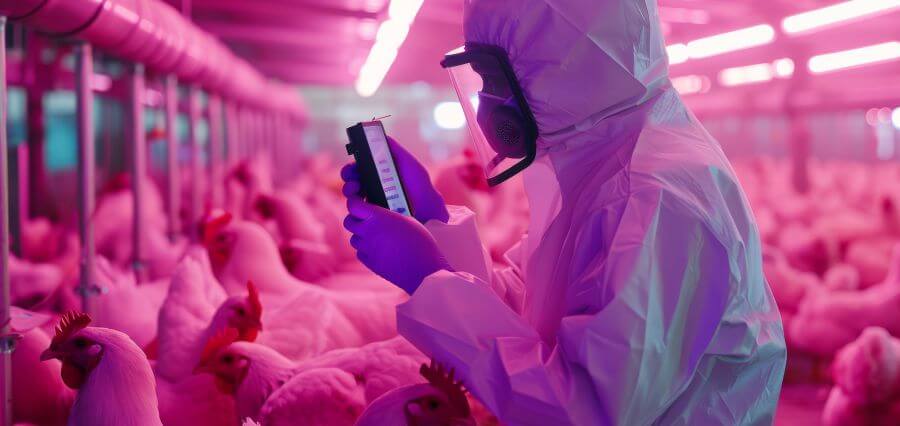Triple-digit temperatures, industrial fans, and the use of gas to euthanize millions of sick chickens may have led to the largest bird flu outbreak among U.S. workers to date, federal health officials reported on Tuesday.
A commercial egg-laying facility in northeast Colorado now has four confirmed cases of bird flu among workers, with a fifth presumed case pending test results. This outbreak, announced over the weekend, has doubled the number of U.S. human cases since agricultural workers first began contracting bird flu this year, initially from dairy cows.
Workers at the Weld County poultry farm were in the process of culling 1.8 million chickens, some of which were infected with the H5N1 influenza, to prevent further spread. During this process, industrial fans blew feathers and other contaminated materials through the sweltering barn, causing the workers’ goggles or N95 masks to slip and exposing them to the virus, explained Dr. Nirav Shah, principal deputy director of the Centers for Disease Control and Prevention (CDC).
The infected workers experienced symptoms such as fever, chills, coughing, and eye infections. They were treated with the antiviral medication Tamiflu, and none required hospitalization.
Despite the outbreak, Dr. Shah emphasized that the risk to the general public remains low. The workers’ illnesses were relatively mild, and Tamiflu continues to be effective. Moreover, the genetic sequence of the virus has not significantly changed since December, even as it spread from Texas to a dozen other states, including Colorado, affecting birds, cows, and people.
“We’ve not seen severe illness, which is reassuring,” Shah said. “The other thing we look at, in addition to severity, is whether the virus is able to transmit from animals to humans and/or from humans to humans with greater ease or with greater efficiency. We haven’t seen changes, particularly on the human-to-human side.”
Read More: Click Here





